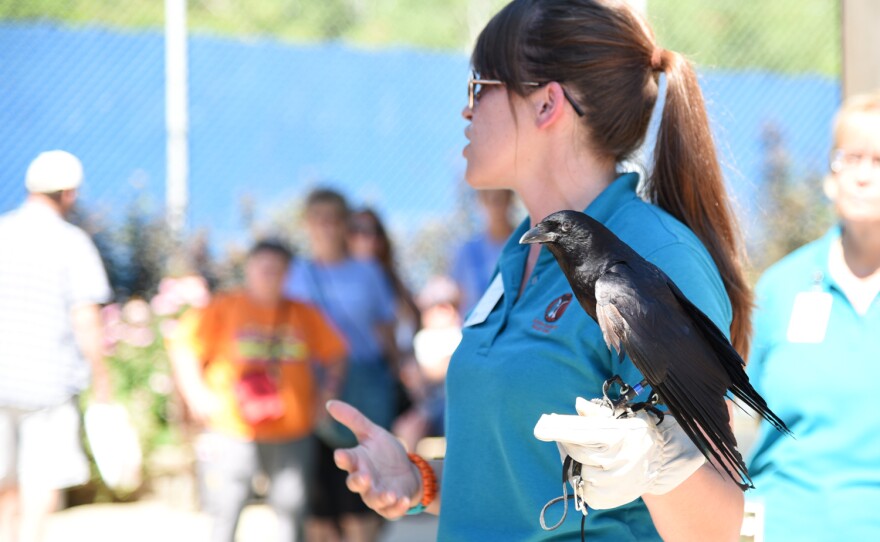The Schlitz Audubon Nature Center hugs the Lake Michigan shoreline a dozen miles north of downtown Milwaukee. Trails crisscross the center’s 185 acres and visitors can find themselves walking through wetlands, forests, restored prairie and along the undeveloped shore of the lake itself.

The nature center’s acreage was formerly a farm for the Schlitz Brewery draft horses. And while the horses are no longer in residence, some of their avian brothers and sisters are, including several birds of prey.
The center has a Raptor Program, designed to educate people about how these birds impact our ecosystem.
Diane Visty is the center's raptor program manager, and her job is to teach people about the birds that make their home at the nature center. She also supervises their care and ensures the birds are ready to do their new job: meeting the public during the center’s 450 yearly outreach programs.
"We take birds to all of them. That’s the purpose is to get the feathered animal ambassadors out there and then they have close contact. You know, those beak to beak experiences, that’s what really charges folks up and gets them excited about nature," says Visty.

Many of the birds featured in the Raptor Program were found injured in the wild and underwent rehabilitation elsewhere. The birds that can be returned to their natural habitat after treatment are released, but many couldn’t survive if they were let go. So those birds come to the center to become "feathered ambassadors".
"There’s a long extended process with a lot of time involved with the trainers first – the staff, the paid staff – and then the volunteers continue that training every single day," says Visty. "In fact, when we take them out, the public gets to help train them. So every time they interact with a person that’s a training session for us."
This piece originally aired August 9, 2016.








